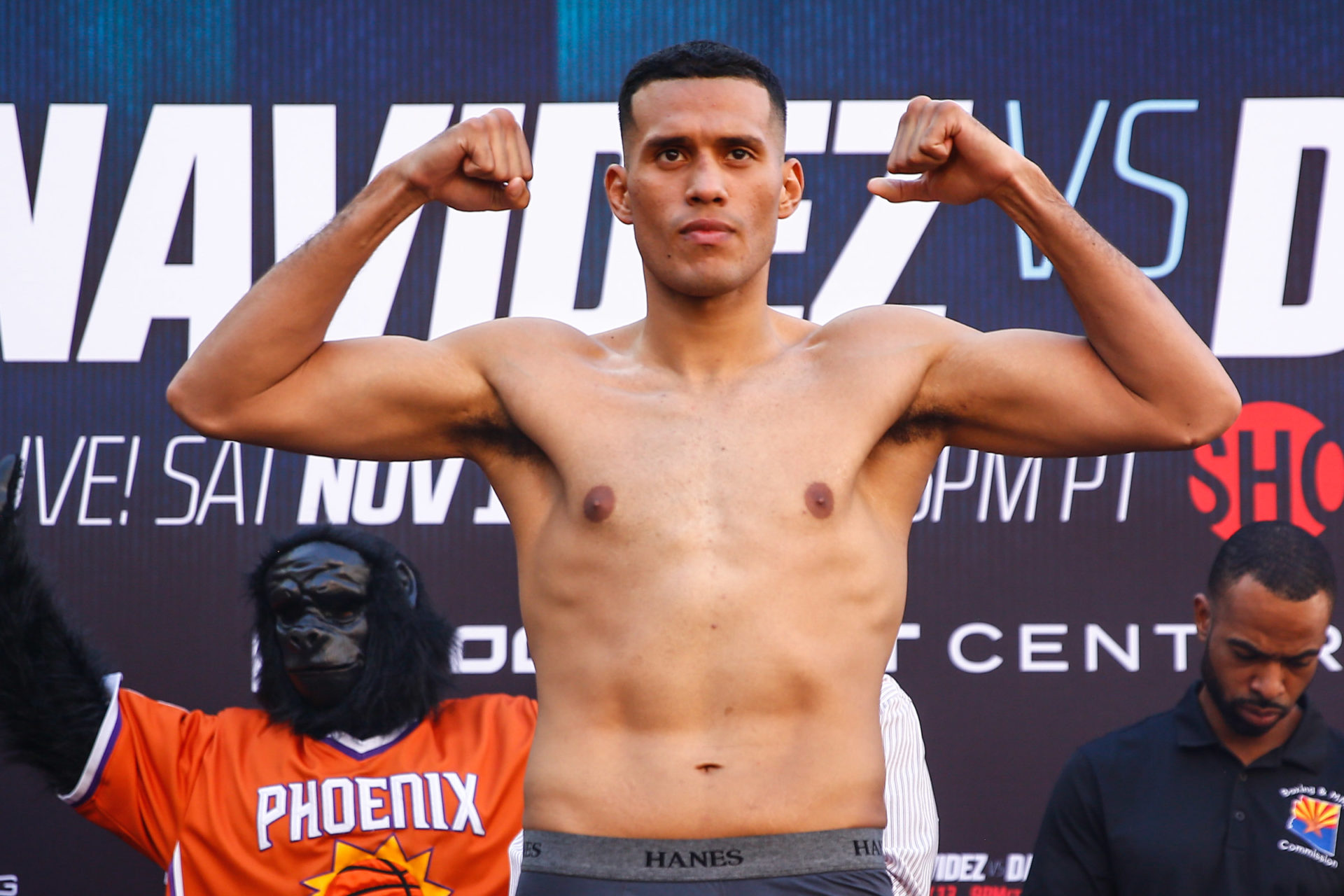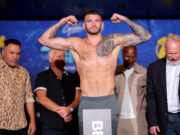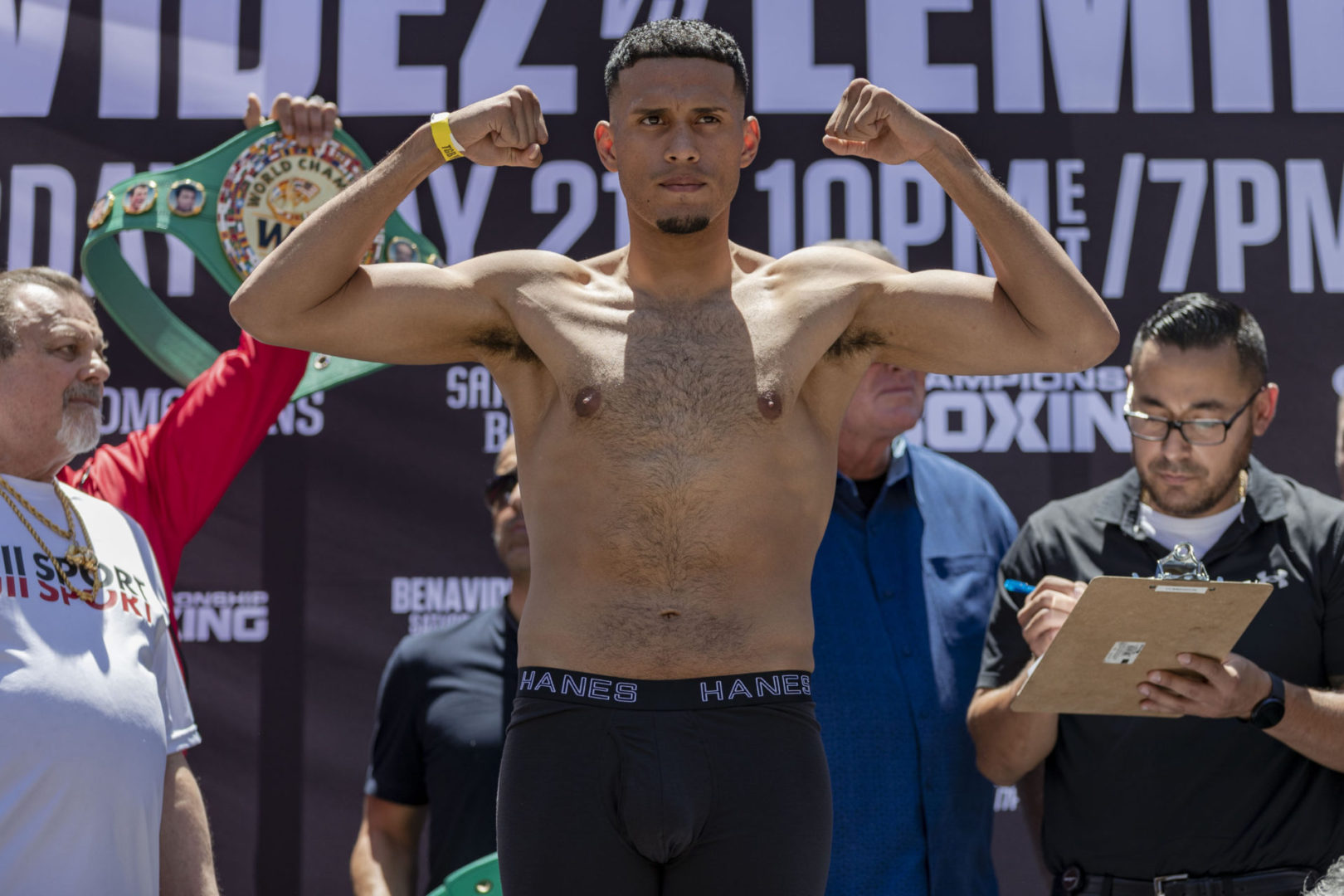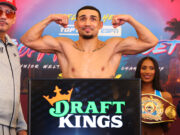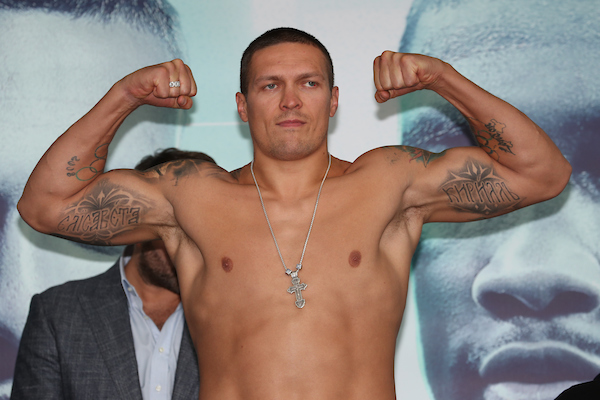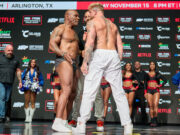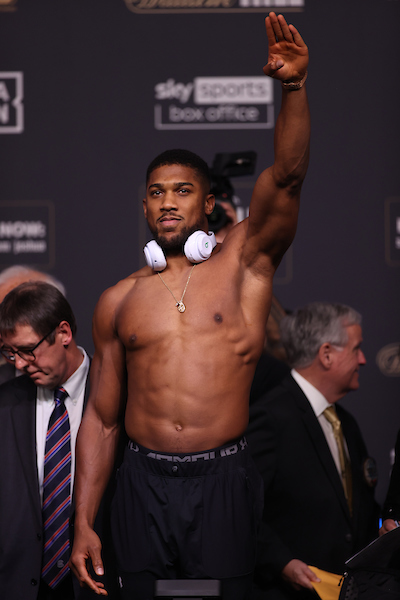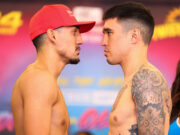By Norm Fraienheim-
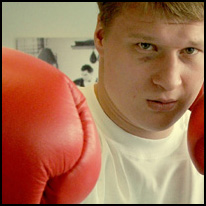
Anthony Joshua and Wladimir Klitschko arrived in New York this week for a timely news conference that helped deflect attention on the bizarre circumstances that continue to unfold in the wake of Alexander Povetkin’s positive test for a banned substance in December.
The prospect of Joshua-Klitschko on April 29 in front of a projected crowd of 90,000 at London’s Wembley Stadium offers some hope in what looks like the most compelling heavyweight fight in years. The flip side is Povetkin, a mystery wrapped in a mess.
Two days after Joshua and Klitschko met the media at Madison Garden, there were reports from Russia that Povetkin’s B-sample came up positive for the PED that forced a cancellation of his Dec. 17 bout against Bermane Stiverne for the World Boxing Council’s interim belt in Ekaterinburg, Russia.
It’s hard to know what to make of the early reports from Russia. Donald Trump might believe them. Without some confirmation from The Associated Press or some other mainstream outlet, however, it’s wise to be skeptical. The test of the B-sample was conducted in Los Angeles. The original test was reportedly done on Dec. 6, presumably in Russia.
I tend to believe initial stories abut the B- sample, which confirmed that there were traces of Ostarine, a steroid, in Povetkin’s A-sample. Here’s why: Quotes defending Povetkin and questioning the integrity of the testing process from promoter Andrey Ryabinsky and a Russian lawmaker were included in reports about the B-sample.
It was as if they knew what the result would be.
Ryabinksy said Povetkin came up clean in “alternative tests” conducted in Lausanne. Somehow, this sounds like those “alternative facts” that Trump staffer Kellyanne Conway introduced to today’s Orwellian rhetoric.
Then, there was a reported lawmaker and chairman of a sports committee, Mikhail Degtyaryov, who was quoted as saying: “The provocation against Povetkin exposed the fragility and weakness of the anti-doping system.’’
The Russian lawmaker didn’t mention that other system, state-sanctioned doping, which The New York Times exposed in May 2016. Not even Vladimir Putin could completely deny that report. It resulted in a partial ban of the Russian track-and-field team at last summer’s Rio Olympics. Ramifications continue.
On the same day that there were reports from Russia about Povetin’s B-sample, Reuters reported that the International Olympic Committee stripped the Russian women of the 400-meter relay silver medal from the 2012 Olympics after Antonina Krivoshapka’s B-sample came up dirty.
https://sports.yahoo.com/news/ioc-sanctions-three-athletes-anti-doping-breaches-092922488–oly.html
It’s impossible to separate Povetkin, a 2004 Olympic gold medalist, from the rest of Russia’s sports system. I don’t know him. I’ve never met him. I liked his boxing skills and he might have beaten Deontay Wilder in Moscow last May. But that one got cancelled, too, when Povetkin tested positive for meldonium.
Regardless of whether he gets sanctioned or suspended, the best guess is that Povetkin will simply fade from the scene, forgotten amid all the attention on Joshua and Klitschko. The game will move on.
The question is whether Wilder can regain the momentum he had before the cancellation. It cost Wilder a reported $4.5 million and a lot more. In an effort to stay busy, he fought and beat Chris Arreola in July, but he suffered costly injuries to his right hand and biceps.
He’ll test the hand and arm in a Feb. 25 return against former football player Gerald Washington, who replaced Poland’s Andrzej Wawrzyk. Wawrzyk got bumped off the card because – yeah, you guessed it – he came up dirty in drug testing.
It’s fair to wonder whether Wilder would have beaten Povetkin in a Moscow victory big enough to put him first in line for Joshua. Could it have been Wilder at New York’s news conference instead of Klitschko? We’ll never know. Then again, we’ll never know a lot of things in a world growing curiouser and curiouser.

